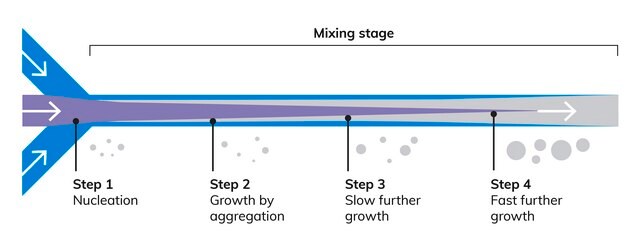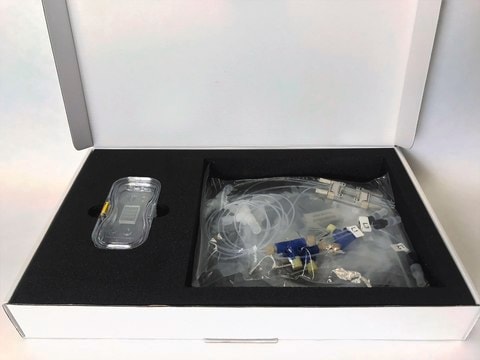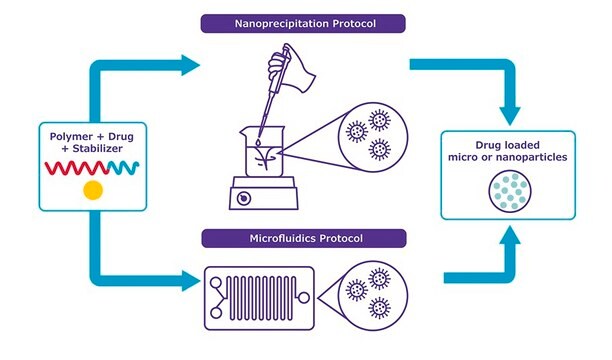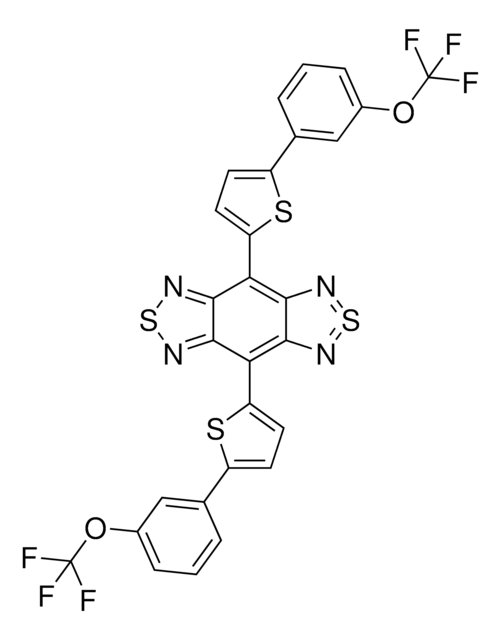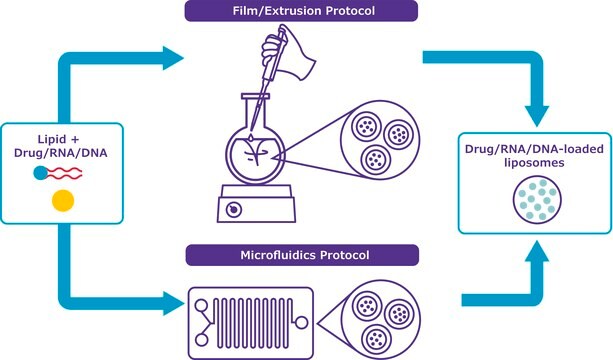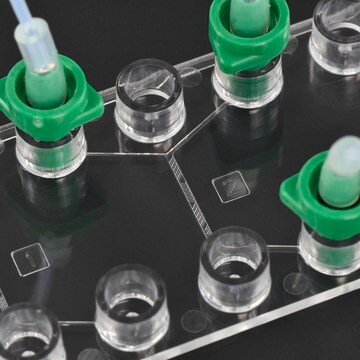Wichtige Dokumente
911593
NanoFabTx™ microfluidic - nano
device kit for synthesis of 100-200 nm nanoparticles and liposomes
Synonym(e):
Liposomes, Microfluidic kit, NanoFabTx™ device kit, Nanoformulation, Nanoparticle
About This Item
Empfohlene Produkte
Beschreibung
Microfludic device kit for synthesizing nanparticles
Kit components :
Qualitätsniveau
Anwendung(en)
advanced drug delivery
Verwandte Kategorien
Allgemeine Beschreibung
Anwendung
Leistungsmerkmale und Vorteile
- Step-by-step microfluidic-based protocols developed and tested by our formulation scientists
- Optimization of drug encapsulation and loading efficiency in nanoparticles and liposomes
- Selection of optimal nanoparticle and liposome size of any size between 100-200 nm
- Small reaction volumes to reduce waste of expensive reagents and therapeutics
Rechtliche Hinweise
Ähnliches Produkt
Hier finden Sie alle aktuellen Versionen:
Analysenzertifikate (COA)
It looks like we've run into a problem, but you can still download Certificates of Analysis from our Dokumente section.
Wenn Sie Hilfe benötigen, wenden Sie sich bitte an Kundensupport
Besitzen Sie dieses Produkt bereits?
In der Dokumentenbibliothek finden Sie die Dokumentation zu den Produkten, die Sie kürzlich erworben haben.
Artikel
Professor Robert K. Prud’homme introduces flash nanoprecipitation (FNP) for nanoparticle fabrication, which is a scalable, rapid mixing process for nanoparticle formulations.
Global Trade Item Number
| SKU | GTIN |
|---|---|
| 911593-1EA | 4061841335405 |
Unser Team von Wissenschaftlern verfügt über Erfahrung in allen Forschungsbereichen einschließlich Life Science, Materialwissenschaften, chemischer Synthese, Chromatographie, Analytik und vielen mehr..
Setzen Sie sich mit dem technischen Dienst in Verbindung.